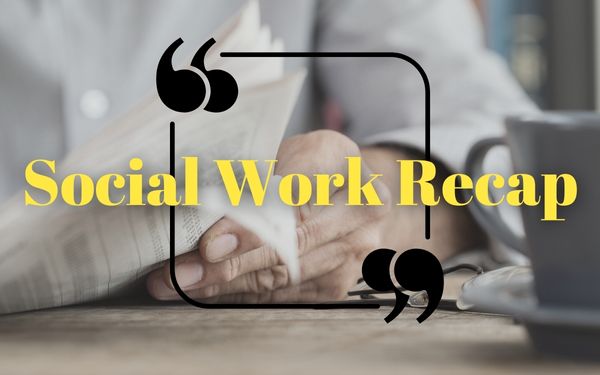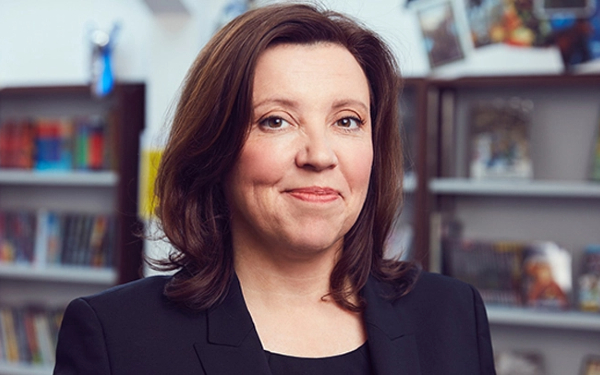
Social Work Recap is a weekly series where we present key news, events, conversations, tweets and campaigns around social work from the preceding week.
From the story behind Finley Boden’s return to his parents to the Children’s Commissioner threatening legal action over the government’s asylum plans, here’s what you might have missed this week in social work:
Court papers reveal how Finley Boden was returned to his parents

Finley Boden (photo: Derbyshire Constabulary)
Court papers, obtained by the BBC, have revealed the decision-making behind Finley Boden’s return to his parents prior to his death.
Finley died on Christmas Day 2020, at 10 months old, just 39 days after he was returned to his parents. He had sustained over 130 injuries.
He had been removed from Shannon Marsden and Stephen Boden’s care just after he was born due to Derbyshire social workers’ concerns that he was likely to suffer significant harm at home.

Photo by Derbyshire police
Over the next six months, during which social workers were not completing visits due to lockdown restrictions, his mother reported giving up cannabis and sent practitioners photos of the house looking clean and tidy.
When Covid restrictions eased and the parents could meet Finley again, his social worker also reported positive observations. However, this was overshadowed by drug tests that showed both Marsden and Boden had continued smoking cannabis.
Despite the local authority’s suggestion of a four-month transition plan, where Finley would return gradually to their care, his parents pushed for a quicker transition.
Finley’s Cafcass guardian had only been able to see Finley once via a WhatsApp call. She agreed that Finley should be returned to his parents within six to eight weeks, given that they had “clearly made and sustained positive changes”.
The family court hearing, on 1 October 2020, was conducted on the phone due to lockdown restrictions, and the final decision was made by two magistrates. They both supported the guardian’s view and did not order further drug tests, despite it being requested by the local authority.
By 23 November, Finley was living with his parents full-time.
In a statement to the BBC, Cafcass said: “It is not possible to say whether a longer transition plan would have prevented Finley’s death. What led to his death was the ability of his parents to deceive everyone involved about their love for him and their desire to care for him.”
Children’s Commissioner threatens legal action over government’s asylum plans

Children’s Commissioner for England Rachel de Souza (credit: Office of the Children’s Commissioner)
The Children’s Commissioner for England has confirmed that she will consider taking legal action if the government doesn’t amend its Illegal Migration Bill to protect vulnerable children.
Appearing on Channel 4 News, Dame Rachel de Souza said the asylum bill “undermines” the Children Act 1989 and expressed concern over “how quickly” it was being taken through parliament.
“I am trying to change the bill, I’m working really hard to ensure that it doesn’t go into law as it stands,” she added.
“I think we need to look at legal action because I’m concerned about this bill and its impact on vulnerable children.”
The bill, which would effectively ban anyone who comes to the UK without leave to enter or remain from claiming asylum, passed its third reading in the House of Commons in late April, by 289 votes to 230.
De Souza had also previously sent a briefing to MPs, warning that the bill “formalises a situation where children who have come to this country alone, fleeing abuse or persecution, are treated differently to children living here experiencing abuse”.
Experts lambast government’s “divisive” claims about child sexual abuse

Home secretary Suella Braverman (credit: HM Government)
Child sexual abuse experts and academics have accused the government of “perpetuating misinformation, racism and division”.
They raised concerns in an open letter to the government, in the light of home secretary Suella Braverman’s column for the Mail on Sunday last month, in which she stated that perpetrators of grooming-based abuse were “almost all British-Pakistani”.
Following the government’s response to the Independent Inquiry into Child Sexual Abuse (IICSA), over 60 experts urged it to implement “evidence-informed” approaches to the issue in an open letter.
“This includes challenging the damaging ‘myths and stereotypes’ noted by IICSA and the Westminster government itself,” they wrote.
“To this end, we urgently ask all politicians to refrain from making partial, inaccurate or divisive claims about child sexual abuse. Whatever the intention, stereotyping around child sexual abuse (racial or otherwise) poses considerable risks, not least to children.”
They further warned against “singling out” one type of abuse, perpetrator or victim as more “worthy of attention”, calling it “ineffective and unethical”.
Overlooking and misrepresenting the sheer scale and varied nature of child sexual abuse was dangerous, they added.
“Whatever the intention behind these partial narratives, children will almost certainly be less safe as a result.”
Read the full list of their recommendations in their letter.
New bill secures paid leave for carers
? It’s official! People juggling paid employment and unpaid care will have a #RightToCarersLeave for the very first time.
The Carer’s Leave Bill has received Royal Assent, meaning it will be the law for all employers in England, Scotland and Wales to provide carer’s leave. ? pic.twitter.com/Lap5y8mz4m
— Carers UK (@CarersUK) May 25, 2023
Legislation providing unpaid time off for those juggling work and unpaid care has passed into law.
Any employee in England, Wales or Scotland caring for a friend or relative will in future receive five days of carer’s leave per year on top of their usual annual leave allocation.
According to charity Carers UK, around 2.4 million people in the UK are currently in employment while shouldering caring responsibilities.
Helen Walker, the chief executive of Carers UK, called this a historic moment.
“The evidence is clear: being able to take leave from work to support an older, disabled or seriously ill relative makes a huge difference to carers’ lives and can help them stay in paid work,” she added.
“Managing these dual responsibilities is often stressful and demanding. Being able to use carer’s leave will remove guilt for many workers needing to take some time out to care, or having to use their annual leave – their own rest time.”
The Carer’s Leave Act 2023’s implementation date is yet to be confirmed, but it is expected to come into force next year.
Tweet of the week:
So, I’ve been contacted by a professional. They have concerns with a survivor of abuse as they have a minor criminal record and are now working in the industry speaking about their trauma. They feel they shouldn’t be because of their criminal record.
Many of us do including me.…
— S A M M Y woodhouse (@sammywoodhouse1) May 19, 2023
Do you want to share your views and reflections on social work with fellow practitioners by writing for us? Check out our guidelines page for information on how to share your ideas.



 Family help: one local authority’s experience of the model
Family help: one local authority’s experience of the model  ‘I spent the first three months listening’: how supportive leadership can transform children’s services
‘I spent the first three months listening’: how supportive leadership can transform children’s services  How senior leaders in one authority maintain a culture of excellence
How senior leaders in one authority maintain a culture of excellence  How staff support ensures fantastic outcomes for children and families
How staff support ensures fantastic outcomes for children and families  Workforce Insights – showcasing a selection of the sector’s top recruiters
Workforce Insights – showcasing a selection of the sector’s top recruiters 

 Facebook
Facebook X
X LinkedIn
LinkedIn Instagram
Instagram
Comments are closed.